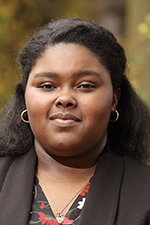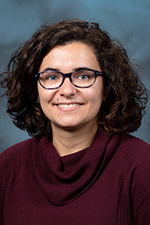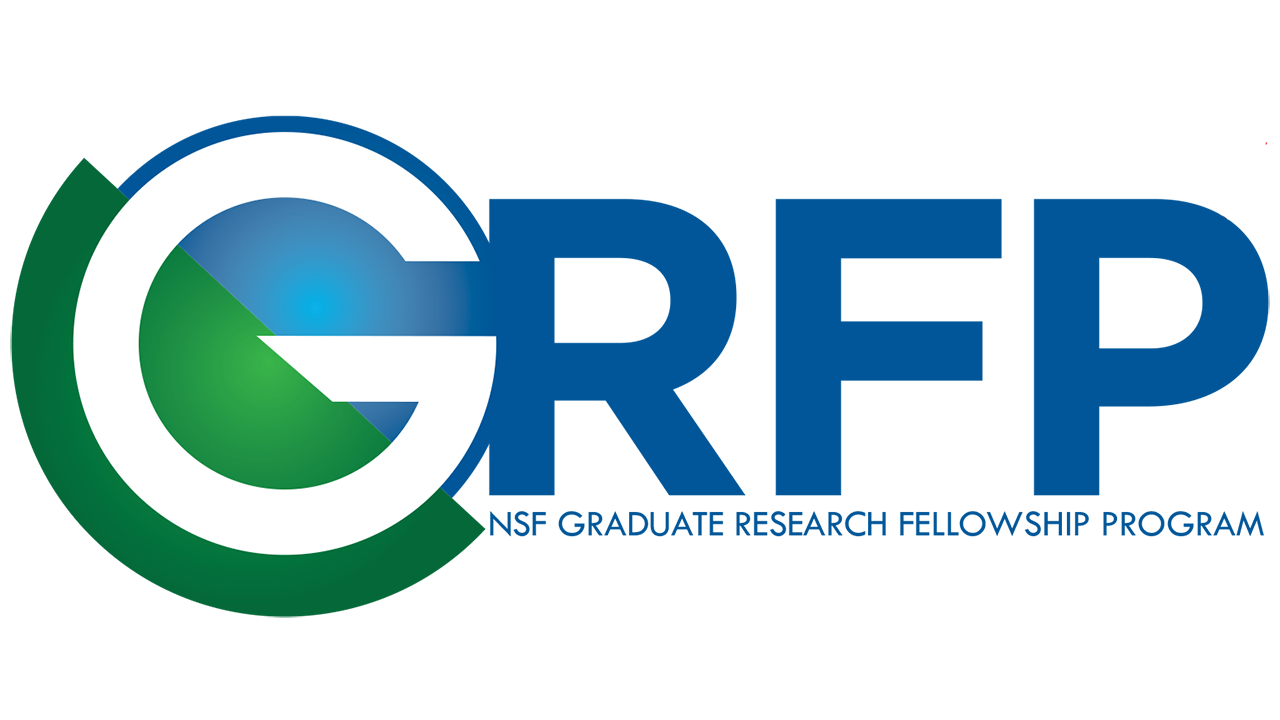3 Auburn Engineering grads named NSF Graduate Research Fellows
Published: Mar 30, 2021 12:23 PM
By Chris Anthony
Three recent Auburn Engineering alumni have been named National Science Foundation Graduate Research Fellows.
The prestigious fellowship program recognizes and supports outstanding graduate students who are pursuing research-based master's and doctoral degrees in NSF-supported disciplines in science, technology, engineering and mathematics.
Fellows benefit from three years of financial support within a five-year fellowship period — a $34,000 annual stipend and a $12,000 cost-of-education allowance to the graduate institution — as well as opportunities for international research and professional development.
The following alumni were recognized by the NSF:

Bryana Harris, a 2019 graduate with a bachelor’s degree in chemical engineering, is now a doctoral student in biomedical engineering at the University of Virginia, working with professor Jeffrey Saucerman. At Auburn, Harris was a 2018-19 undergraduate research fellow and worked under the direction of Elizabeth Lipke, the Mary and John H. Sanders Professor of chemical engineering.
Harris’ undergraduate research project was titled “Examining the Effects of Tissue Geometry on Cardiomyocyte Maturation in 3D Developing Human Engineered Cardiac Tissues.” As an undergraduate, Harris was involved with the Biomedical Engineering Society, the Academic Excellence Program, the National Society of Black Engineers and 100+ Women Strong. Harris also completed Research Experiences for Undergraduates programs at the University of Georgia and the University of California, San Diego.

Elizabeth M. Prior is a 2019 graduate with a bachelor’s degree in civil engineering. She is currently pursuing a doctorate in biological systems engineering at Virginia Tech under the guidance of professors Cully Hession and Valerie Thomas. Her current research is focused on understanding how vegetation affects flooding, by coupling drone lidar and multispectral data with hydrodynamic modeling.
As a two-time undergraduate research fellow from 2018-20, Prior completed a research project titled “Effectiveness of Measuring the Turbidity of Waterways with Multispectral Imaging Obtained by Unmanned Aerial Vehicles” under the mentorship of assistant professor Frances O’Donnell. Prior also worked as an undergraduate research assistant with the Department of Civil and Environmental Engineering and the Auburn University Erosion and Sediment Control Testing Facility. During her time at Auburn, Prior was also an active member of 100+ Women Strong and Engineers Without Borders.

Tyler Toner, a 2019 graduate with a bachelor’s degree in mechanical engineering and minor in computer science, is currently pursuing a doctorate in mechanical engineering at the University of Michigan under the direction of associate professor Kira Barton and professor Dawn Tilbury. His research is on developing methods to automate robot programming by allowing a robot to learn from itself and other robots. This work is intended to accelerate robot programming in industry, which is moving toward smaller batches that require more frequent reprogramming, as well as enable non-experts to program robots with only high-level commands.
While at Auburn, Toner was an undergraduate research assistant in the GPS and Vehicle Dynamics Laboratory, led by David Bevly, and also worked with former faculty member Edmon Perkins on modeling the swarm dynamics of ant colonies. Toner was also involved in the Auburn Small Satellite Program and the Formula SAE racing team as an undergraduate, in addition to winning several O’Neal Austin Best Student Awards for his mechanical engineering coursework.
Auburn Engineering has produced 42 NSF Graduate Research Fellows over the past decade.
Media Contact: , chris.anthony@auburn.edu, 334.844.3447
The Graduate Research Fellowship Program is sponsored by the National Science Foundation.

